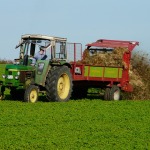By Ben Anderson
In the United States, there has always been a tug of war between protection of privacy and investigation rights of law enforcement and similar government agencies. With drones becoming more and more popular as a tech used both by private citizens and, more recently law enforcement, there are new areas in which the line between private and public has become blurred. There are three things that help to clear up these gray areas. Firstly, private use of drones does not pose as much of a threat to privacy as widespread government use of drones. Secondly, the US should pass legislation restricting what private citizens and businesses do with drones. Thirdly, I will explain the advantages and disadvantages of the regulation of drones and how it could affect both private and government usage.
Private use of drones does not pose as much of a threat to security as widespread government use of drones for a couple of reasons. Private use of drones is almost always used for one of a couple purposes: hobbyist or recreational flying, filmmaking, agricultural or land surveying, or finally checking for necessity of repair or maintenance. In hobbyist or recreation flying, people tend to like open areas such as parks to fly. That means the majority of recreational flying, it is done over public property which raises very little concern for the protection of privacy. The only time there are real privacy concerns are when recreational flying turns more voyeuristic. There are already voyeurism laws in place which should handle drones as many states are already updating them to include drone activities. Filmmaking uses of drones is one of the easiest to rule out as not privacy invasive. Filming a movie rarely clashes with privacy concerns because directors desire a set to be exactly as they see it, and therefore section off areas as to not capture any private activity. The addition of drones does very little to change this as film crews in the past have often used helicopters and cranes to get shots; drones are just a quality of life improvement. Some film makers overseas have used their drones to show just how little privacy we still possess by flying over Facebook and Google offices in Dublin and have so far avoided any confrontation from the companies by stating, “We feel that it is no more intrusive than something like Google Street View” (RollingStone.com). Agricultural uses and repair and maintenance uses are also of no real threat to privacy. Because these uses only film and record something the user already owns, there is no need to fear for privacy concerns. The reason Government use of drones causes more of a threat to security is because the main use of drones would be by law enforcement. Their main use would be to take pictures and video in a way that is far more inconspicuous than standing around with a camera. This would require that they photograph people who do not know they are being recorded and most likely do not want to be recorded. Because drones can be very helpful to law enforcement for the exact same reasons, there must be a fine line drawn either at the state or federal level as to how invasive law enforcement can be before it intrudes on privacy rights. “They have an enormous capacity to intrude upon personal privacy in a way that no technology currently, or in the past, has allowed” (Kevin Baker, ww2.kqed.org).
The US should pass legislation restricting what private citizens and businesses do with drones. Although there are already drones laws in place that restrict when, where, how quickly, and how high drone users can fly, there are many things that are not addressed by these country wide, base line rules. Because each state has its own environmental and social differences, each state should also have its only drone laws to accommodate these differences. Utah has a law prohibiting the use of drones near wildfires. Idaho has a law prohibiting the use of drones for hunting purposes. These are laws that would be totally unnecessary in a state like New York (NCLS.org). Restriction may become even more necessary in the near future as drone technology is one of the fastest growing tech industries in the world right now and advancements in camera quality and drone size and maneuverability will only make invading private areas easier.
Although I just stated that there needs to be regulation for drone usage, there are both advantages and disadvantages of regulating drone usage. The advantages are mostly stated above. It allows states to maintain control over recreational and commercial drone flying as to stop it from interfering with or harassing other people or government organizations. It allows stops drone pilots from creating safety or privacy concerns. But there can also be disadvantages to regulation. In Utah, there is currently a law that states that public safety departments are not allowed to use drones for any reason. This means that even search and rescue operations cannot use drones to help locate a missing person (KUTV.com). Regulations like this are common in many states. A regulation seems to be in the best interest of everyone’s privacy, but when it is implemented, it turns out to be a real thorn in the side of agencies or organizations that could benefit from less restricted usage. This is the fine line that must be walked if legislators are to understand and properly regulate the usage of drones; enough freedom so that people may use drones to their full capability to better the community, but with enough regulation so that drones cannot be taken advantage of for nefarious purposes.


